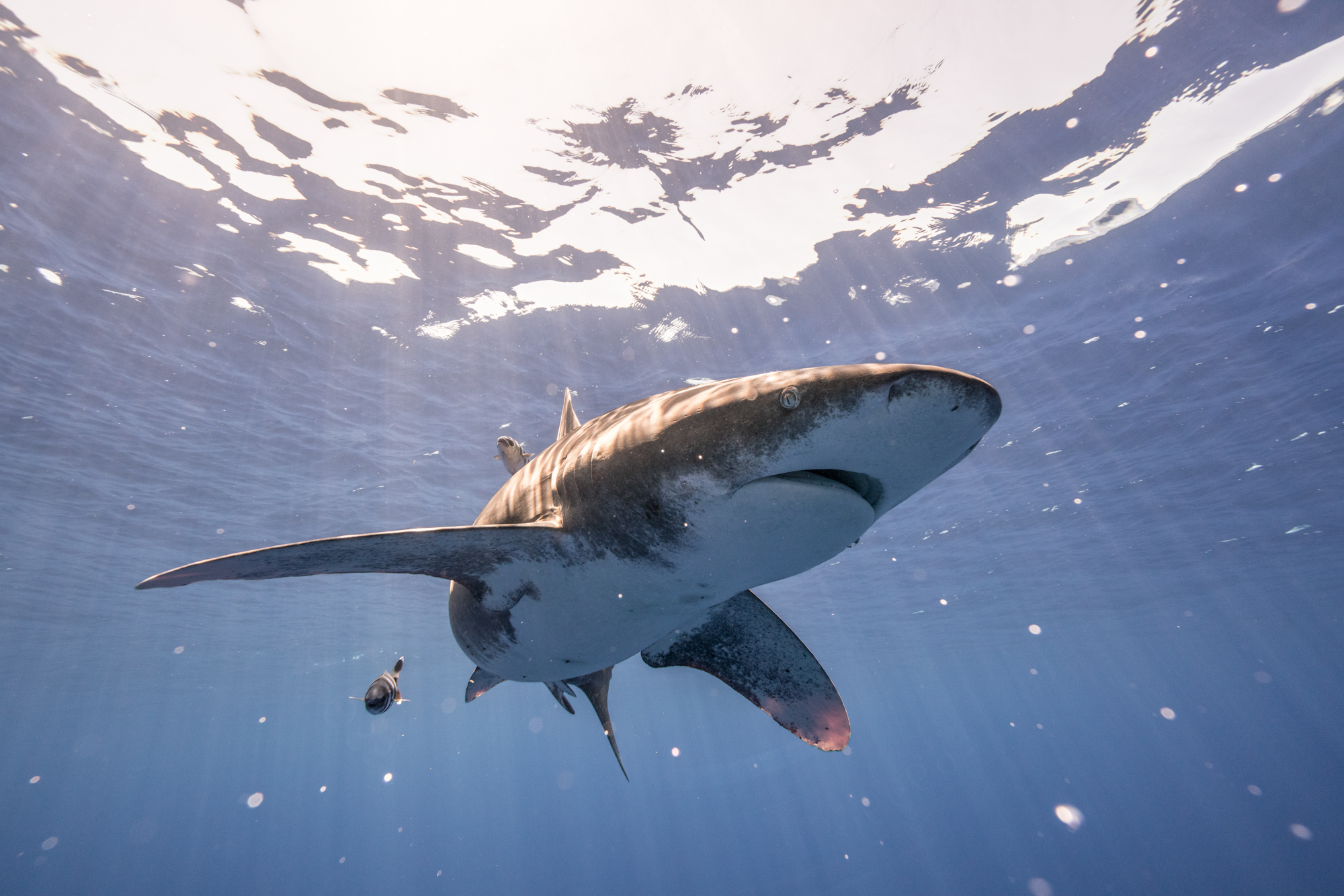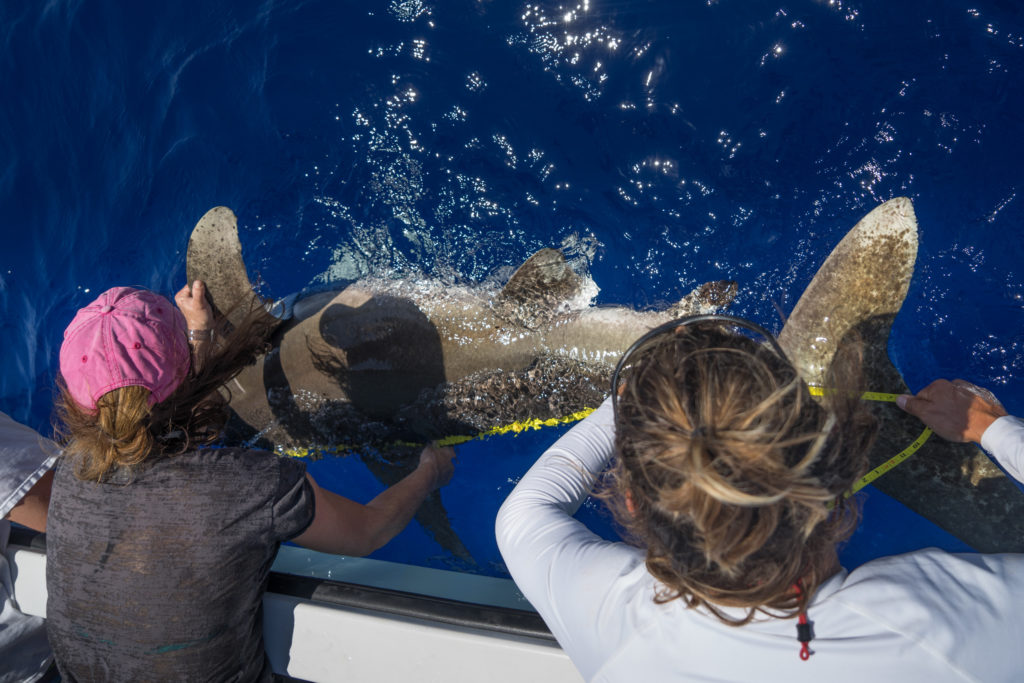
Oceanic Whitetip Shark Conservation
Recent data on oceanic whitetip (OWT) sharks shows they are a species on the edge, reduced to incredibly low levels globally. This makes efforts to safeguard the few populations that remain, critical to their long-term survival. A fundamental component when trying to initiate a species recovery is to be able to define the boundaries of the population in question. Long-term research on mature oceanic whitetip sharks in The Bahamas by researchers at institutions including Florida International University’s Institute of Water and Environment, Cape Eleuthera Institute, Andy Mann Photography, Global FinPrint, and Microwave Telemetry, supported by Moore Bahamas Foundation has shown that the same female sharks at various stages of pregnancy repeatedly visit the same area over multiple years. Since those areas are protected, it greatly increases the survival chances for those individuals who spend time there. Given the life history of sharks, the most effective action to initiate a population recovery is to also protect the nursery/pupping area to increase survival rates for juveniles. With oceanic species such as oceanic whitetips (OWT), the challenge is to identify where these areas are.

New research demonstrates that along with a mating/feeding ground in the Bahamas, a likely pupping ground exists in Haiti, with young animals caught in artisanal Haitian fisheries, and also observed in the adjacent Dominican Republic. Unlike the shark sanctuaries of the Bahamas and Dominican Republic, who are also signatories to the Convention on the International Trade in Endangered Species (CITES), Haiti has no measures that offer these sharks protections.
As a result, the primary objectives of a Summer 2019 OceanX partner research cruise was to verify that the Windward Passage is a pupping area for oceanic whitetips; track movements and depth ranges of juveniles, the least known and currently most vulnerable life-stage to fishing; and investigate connectivity between Bahamas and Haiti populations through satellite tagging and parentage analysis.
Impact:
Simply identifying the location of such pupping areas and tying them genetically to the mature individuals studied in the Bahamas is not sufficient to help conserve the species and initiate a recovery. Focused on real conservation outcomes, Moore Bahamas is supporting Wildlife Conservation Society, Cape Eleuthera Institute, and the Haiti Ocean Project to build on the knowledge and foundation established by the years of research in the Bahamas and the recent OceanX research cruise to increase local support for the effective protection and improved education of the plight of the oceanic whitetip shark.